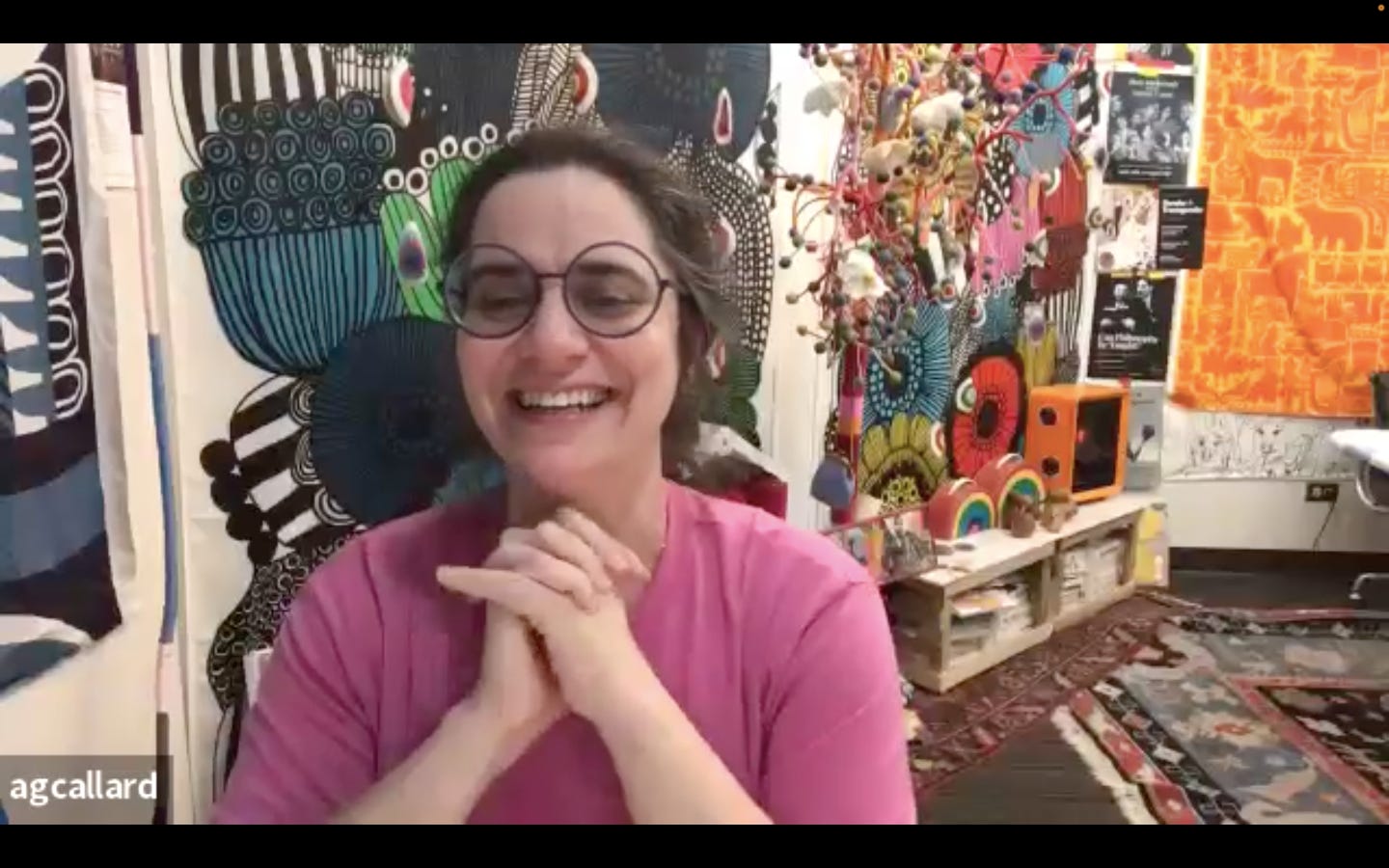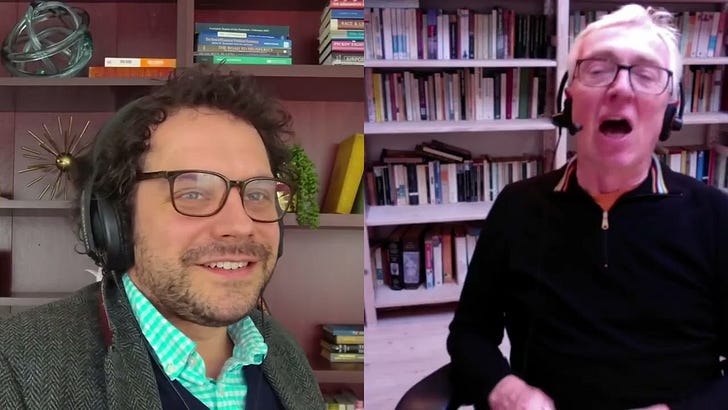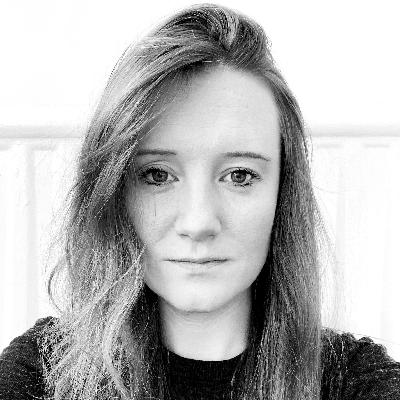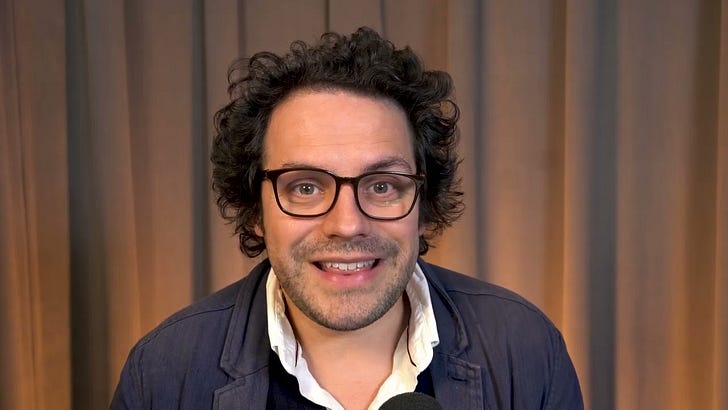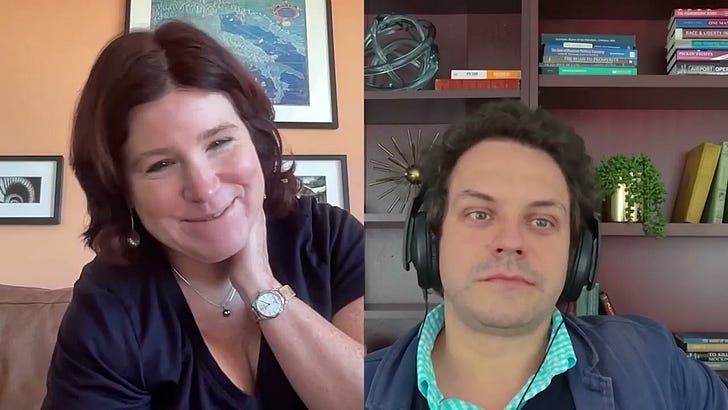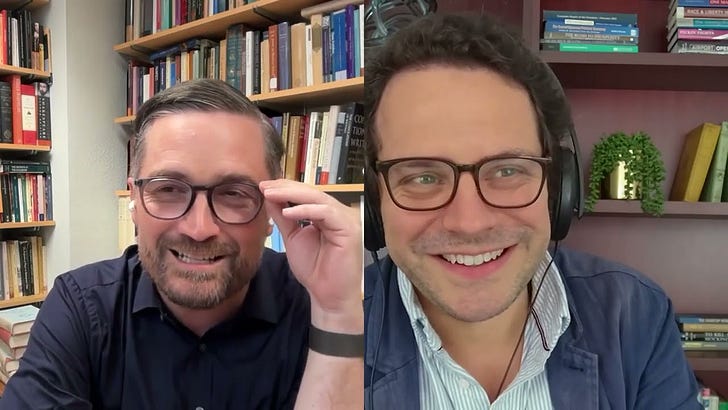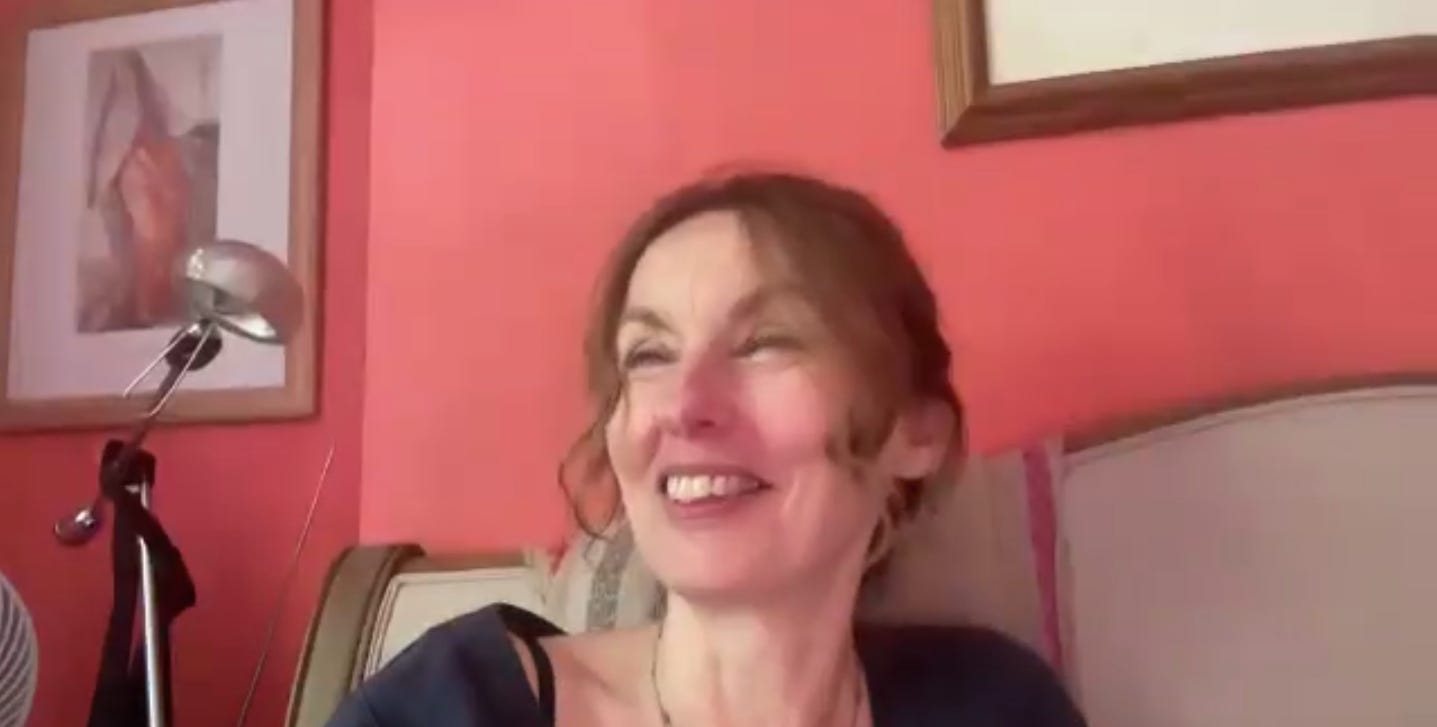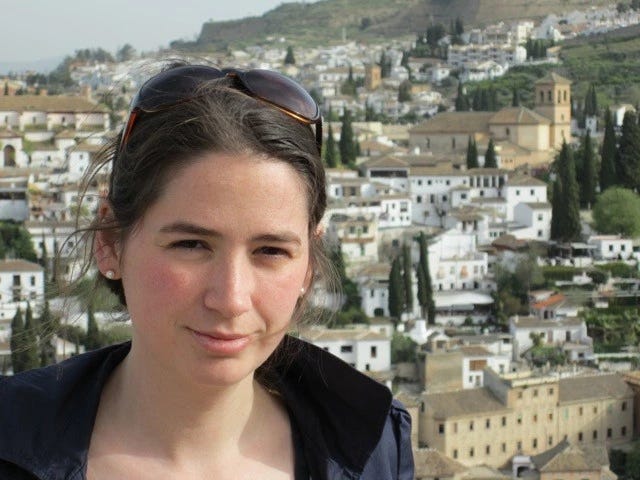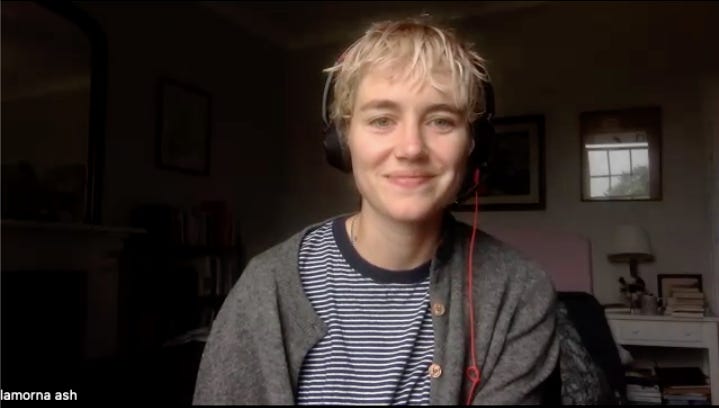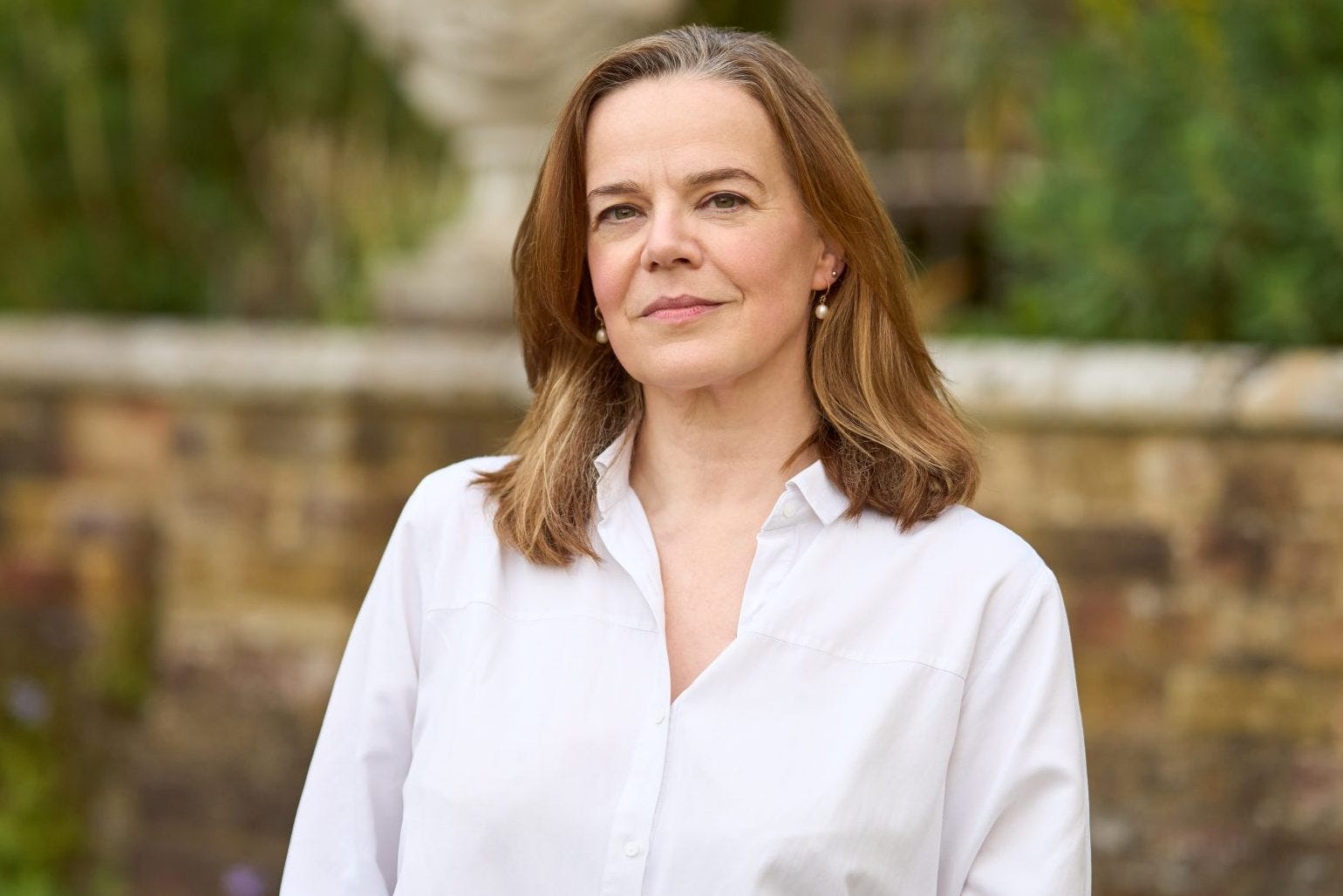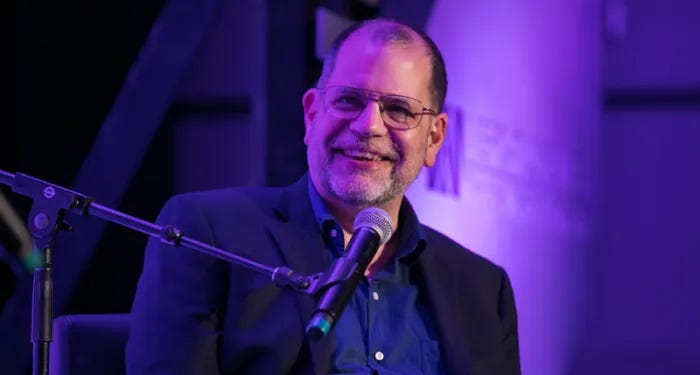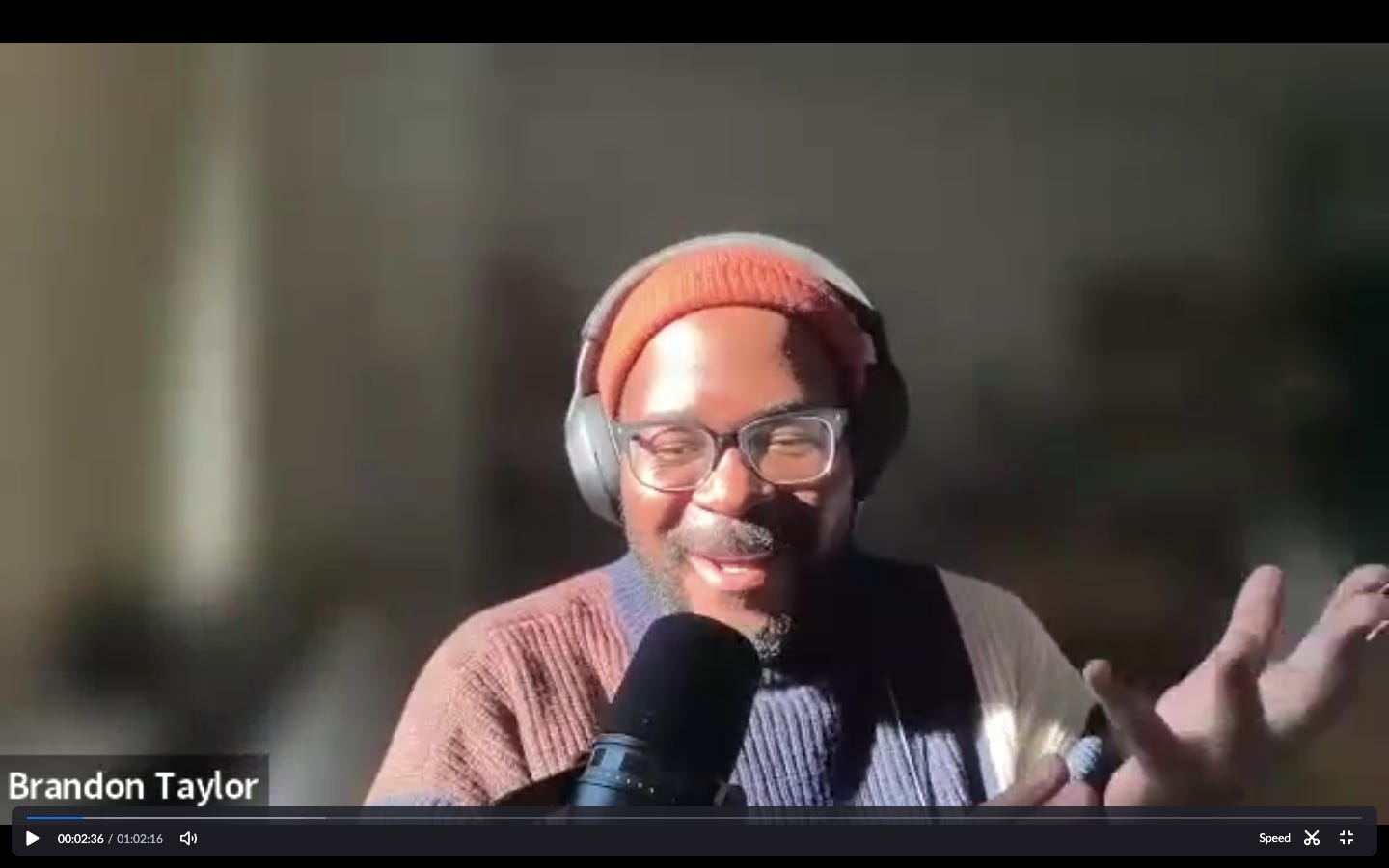Agnes Callard: what is the value of fiction?
Description
After enjoying her new book Open Socrates so much (and having written about her previous book Aspiration in Second Act), I was delighted to talk to Agnes Callard, not least because, as she discusses in Open Socrates, she is a big Tolstoy admirer. We talked about Master and Man, one of my favourite Tolstoy stories, but also about the value of reading fiction, the relationship between fiction and a thought experiment, and other topics of related interest. George Eliot makes an appearance too. In the discussion about the use of fiction in philosophy classes, I was slightly shocked to hear about how much (or how little) reading her undergraduates are prepared to do, but I was interested that they love Pessoa.
Agnes has previously written that the purpose of art is to show us evil. Here is Agnes on Twitter.
Transcript below, may contain errors!
I found this especially interesting.
Exactly, and I mean, 10 seconds, that’s a wild exaggeration. So do you know what the actual number is? No. On average. Okay, the average amount of time that you're allowed to wait before responding to something I say is two tenths of a second, which, it's crazy, isn’t it? Which, that amount of time is not enough time for, that is a one second pause is an awkward pause, okay? So two tenths of a second is not long enough time for the signal that comes at the end of my talking, so the last sound I make, let’s say, to reach your ears and then get into your brain and be processed, and then you figure out what you want to say. It’s not enough time, which means you're making a prediction. That’s what you're doing when I’m talking. You're making a prediction about when I'm going to stop talking, and you're so good at it that you're on almost every time. You're a little worse over Zoom. Zoom screws us up a little bit, right? But this is like what our brains are built to do. This is what we’re super good at, is kind of like interacting, and I think it's really important that it be a genuine interaction. That’s what I’m coming to see, is that we learn best from each other when we can interact, and it’s not obvious that there are those same interaction possibilities by way of text at the moment, right? I’m not saying there couldn’t be, but at the moment, we rely on the fact that we have all these channels open to us. Interestingly, it’s the lag time on the phone, like if we were talking just by phone, is about the same. So we’re so good at this, we don’t need the visual information. That’s why I said phone is also face-to-face. I think phone’s okay, even though a lot of our informational stream is being cut. We’re on target in terms of the quick responses, and there’s some way in which what happens in that circumstance is we become a unit. We become a unit of thinking together, and if we’re texting each other and each of us gets to ponder our response and all that, it becomes dissociated.
Transcript (AI generated)
Henry: Today, I am talking to Agnes Callard, professor of philosophy at the University of Chicago, author of Aspiration, and now most recently, Open Socrates. But to begin with, we are going to talk about Tolstoy. Hello, Agnes: .
Agnes: Hello.
Henry: Shall we talk about Master of Man first?
Agnes: Yeah, absolutely.
Henry: So this is one of Tolstoy's late stories. I think it's from 1895. So he's quite old. He's working on What is Art? He's in what some people think is his crazy period. And I thought it would be interesting to talk about because you write a lot in Open Socrates about Tolstoy's midlife crisis, for want of a better word. Yeah. So what did you think?
Agnes: So I think it's sort of a novel, a story about almost like a kind of fantasy of how a midlife crisis could go if it all went perfectly. Namely, there's this guy, Brekhunov, is that his name? And he is, you know, a landowner and he's well off and aristocratic. And he is selfish and only cares about his money. And the story is just, he takes this, you know, servant of his out to, he wants to go buy a forest and he wants to get there first before anyone else. And so he insists on going into this blizzard and he gets these opportunities to opt out of this plan. And he keeps turning them down. And eventually, you know, they end up kind of in the middle of the blizzard. And at kind of the last moment, when his servant is about to freeze to death, he throws himself on top of the servant and sacrifices himself for the servant. And the reason why it seems like a fantasy is it's like, it's like a guy whose life has a lacuna in it where, you know, where meaning is supposed to be. And he starts to get an inkling of the sort of terror of that as they're spending more and more time in the storm. And his initial response is like to try to basically abandon the servant and go out and continue to get to this forest. But eventually he like, it's like he achieves, he achieves the conquest of meaning through this heroic act of self-sacrifice that is itself kind of like an epiphany, like a fully fulfilling epiphany. He's like in tears and he's happy. He dies happy in this act of self-sacrifice. And the fantasy part of it is like, none of it ever has to get examined too carefully. It doesn't like, his thought doesn't need to be subjected to philosophical scrutiny because it's just this, this one momentary glorious kind of profusion of love. And then it all ends.
Henry: So the difficult question is answered the moment it is asked. Exactly, exactly, right?
Agnes: It's sort of, it's, I see it as like a counterpart to the death of Ivan Ilyich.
Henry: Tell me, tell me more.
Agnes: Well, in the death of Ivan Ilyich, the questions surface for even, you know, when death shows up for him. And he suddenly starts to realize, wait a minute, I've lived my whole life basically in the way that Brekhunov did. Basically in the way that Brekhunov does as, you know, pursuing money, trying to be a socially successful person. What was the point of all that? And he finds himself unable to answer it. And he finds himself, it's the exact opposite. He becomes very alienated from his wife and his daughter, I think.
Henry: Yeah.
Agnes: And the absence of an answer manifests as this absence of connection to anyone, except an old manservant who like lifts up his legs and that's the one relief that he gets. And, you know, it's mostly in the gesture of like someone who will sacrifice themselves for another. Right, that's once again where sort of meaning will show up for a Tolstoy, if it ever will show up in a kind of direct and unashamed way.
Henry: Right, the exercise of human compassion is like a running theme for him. Like if you can get to that, things are going great. Otherwise you've really screwed up.
Agnes: Yeah, that's like Tolstoy's deus ex machina is the sudden act of compassion.
Henry: Right, right. But you think this is unphilosophical?
Agnes: I think it's got its toe in philosophical waters and sort of not much more than that. And it's in a way that makes it quite philosophical in the sense that there's a kind of awareness of like a deep puzzle that is kind of like at the heart of existence. Like there's a sensitivity to that in Tolstoy that's part of what makes him a great writer. But there's not much faith in the prospect of sort of working that through rationally. It's mostly something we just got a gesture at.
Henry: But he does think the question can be answered. Like this is what he shares with you, right? He does think that when you're confronted with the question, he's like, it's okay. There is an answer and it is a true answer. We don't just have to make some, he's like, I've had the truth for you.
Agnes: Yes, I think that that's right. But I think that like the true answer that he comes to is it's compassion and it's sort of religiously flavored compassion, right? I mean, that it's important. It's not just. Yeah, it's a very Christian conclusion. Right, but the part that's important there in a way, even if it's not being Christian, but that it's being religious in the sense of, yes, this is the answer. But if you ask for too much explanation as to what the answer is, it's not going to be the right answer. But if you ask for too much explanation as to why it's the answer, you're going the wrong way. That is, it's gotta, part of the way in which it's the answer is by faith.
Henry: Or revelation.
Agnes: Or, right, faith, exactly. But like, but it's not your task to search and use your rational faculties to find the answer.
Henry: I wonder though, because one of the things Tolstoy is doing is he's putting us in the position of the searcher. So I read this, I'm trying to go through like all of Tolstoy at the moment, which is obviously not, it's not currently happening, but I'm doing a lot of it. And I think basically everything in Tolstoy is the quest for death, right? Literature is always about quest

